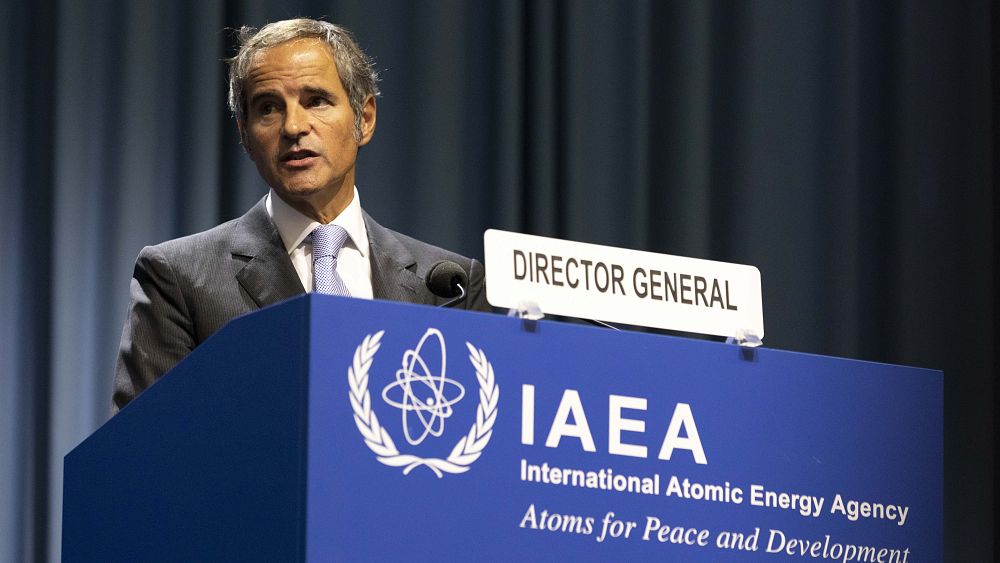
Nuclear energy is green energy, Rafael Mariano Grossi, the Director-General of the International Atomic Energy Agency (IAEA), told Euronews.
“Debates about energy and, in particular, nuclear energy must be based on facts. And the fact of the matter is that nuclear energy is a green energy. It is an energy that has almost no CO2 emissions,” Grossi said in an interview recorded in Brussels on Thursday morning.
“It’s an energy that is already now as we speak, preventing millions of gigatons of CO2 going up in the atmosphere. It’s an energy that provides already now more than half of the clean energy that exists in Europe as we speak today.”
Grossi’s comment comes in the midst of a growing debate in the European Union on whether nuclear power should be labelled as green under the EU’s taxonomy, a technical rulebook that guides governments and investors towards environmentally sustainable projects.
The European Commission is expected to make a decision before the end of the year. France is leading the pro-nuclear team while Germany is spearheading the opposition.
“Sometimes I have the impression that facts are not being looked at as often as they should be. Of course, we respect, in open societies, democratic choices. But when it comes to facts and affirmations, one has to stick to science,” Grossi said.
Asked about the potentially damaging effects of radioactive waste, an argument that many environmental organisations use to oppose the roll-out of nuclear power, Grossi dismissed fears of accidents, arguing the amount of waste from reactors is “ridiculously small”.
“Nuclear waste is a reality. But nuclear waste, of course, is dealt with in an adequate manner, and there has never been an accident involving nuclear waste. When you talk about the volumes of nuclear waste, they are ridiculously small,” he said.
“Did you know, for example, that the whole nuclear waste of the entire fleet of American reactors –talking about around 100 nuclear reactors that have been powering this country for almost 60 years — would fit within a football stadium?” he added.
“How does that compare with the damage that is being caused to the atmosphere, to the environment by other sources of energy that are causing global warming? Nuclear waste is at a place where you can see it, where you can control it and where you can check it.”
Grossi welcomes the ongoing debate among EU countries but believes “winds are turning” in favour of nuclear energy and that science will prevail over ideology.
“I think there is a growing convergence around the fact that Europe needs nuclear energy. It doesn’t mean that every country is going to have nuclear energy again, [it’s] a matter of political choice,” the director noted.
“[But] we see that the winds are turning and that people are recognising that, in fact, it is science and good choices, not ideology, that should prevail when you come to decisions about what energy sources you are going to [use]. So I don’t see a clash.”
Just this month, a group of ten EU countries, led by France, sent a letter asking the Commission to recognise nuclear power as a low-carbon energy source that should be part of the bloc’s decades-long transition towards climate neutrality.
On the other side of the table, Germany, which plans to shut down all its reactors by 2022, is joining forces with other anti-nuclear states like Austria, Denmark, Luxembourg and Spain.
Recent comments by Commission officials appeared to imply the executive will eventually side with Paris and propose to label nuclear as “sustainable”, together with hydrogen, solar and wind power. A similar decision could be taken regarding natural gas, although this source, which is a polluting fossil fuel, might be allowed as “transitional energy” until renewables become widespread.
“Half of Europe is using nuclear and has no intention of phasing it out,” Grossi said. “So let’s present the facts and then let people decide.”